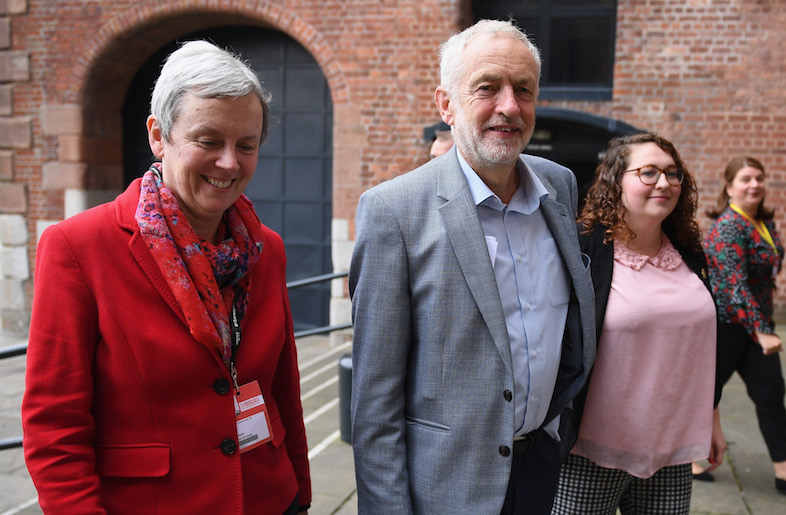Angela Rayner, one of the ‘rising stars’ of Jeremy Corbyn’s frontbench, received rapt applause from Labour members when she spoke to the conference. It wasn’t just that she gave a passionate, warm and funny speech. It was also that she came armed with policies that the party faithful really liked, such as ending the academisation of schools and halting the free schools programme. Even though the roots of these school reforms are in New Labour, they’ve become steadily more unpopular since the Conservatives extended and modified the programmes themselves. Announcing their end as part of Labour’s National Education Service was always going to be a popular move.
In that same vein, you’d expect Margaret Greenwood’s speech earlier this afternoon on Work and Pensions policy to have received a similar response. It didn’t: the hall wasn’t packed to the rafters, but those delegates who were there could only cheer her criticisms of the Conservatives’ welfare programme (and there were many criticisms) as she was unable to produce any solid policy.
Greenwood hasn’t been given the freedom or the spending allocations that Rayner has to pursue reform. So after building the audience up rather with an angry critique of how universal credit and the benefits sanctions system were failing the most vulnerable, all she was able to do was announce a ‘complete overhaul’ of the benefits system without giving any idea of what that overhaul might lead to. Instead, the party will ‘be inviting submissions from across the country to develop proposals for a social security system that is based on compassion and respect rather than distrust and stigma’.
Now, in one sense this is rather honourable: the party is going to consult widely before coming up with a reform. But in another sense, this conference is supposed to showcase Labour as a party that is ready and armed with policies for government, so that whenever an election takes place, Jeremy Corbyn and his top team can leap straight into power and get on with reforms.
Just as academies and free schools have their roots in New Labour, so does failure on welfare reform. Tony Blair asked Frank Field to ‘think the unthinkable’, before deciding that what Field came up with was best left just as a thought rather than concrete policy. As late as 2009, the party was still bobbing about with vague green papers on housing benefit. Even though a Corbyn-led government would undoubtedly take an entirely different approach to welfare, it sounds as though it may end up following in the footsteps of its predecessors in spending an awful lot of time dithering over what that approach might actually be.







Comments